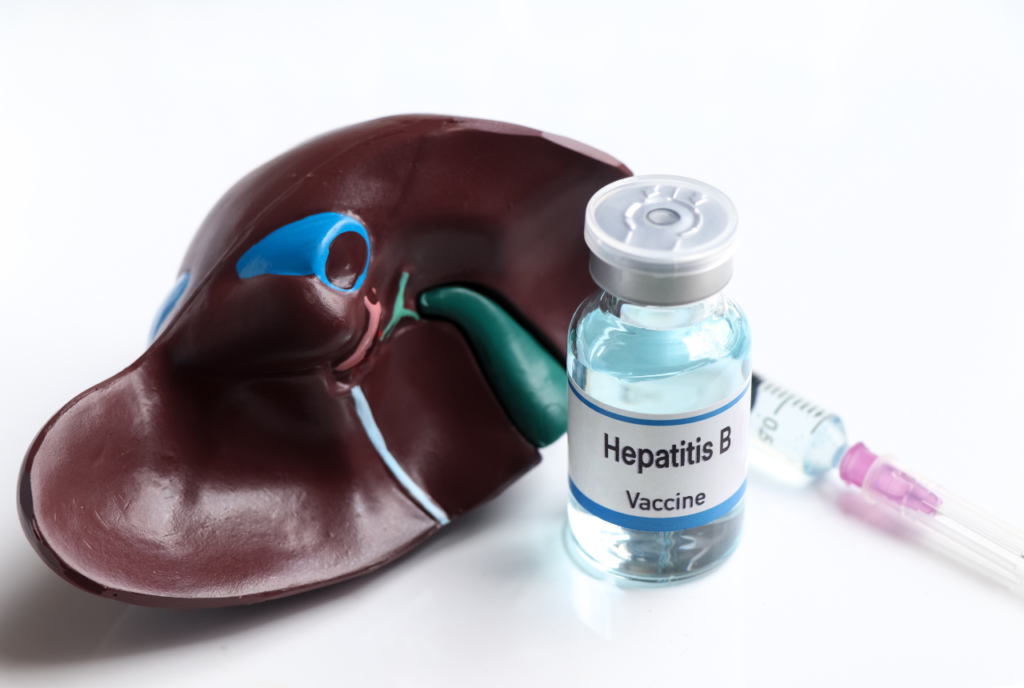
-
 Posted By Dr. Amritangsu Borkakoty
Posted By Dr. Amritangsu Borkakoty -
-
Comments 0
Our liver is a powerhouse organ that is tucked away in the upper right abdomen. It plays a vital role in keeping us healthy. It acts as a filter, processing nutrients from food, detoxifying the body, and regulating hormones. It also stores energy, breaks down fats, and helps maintain healthy blood sugar levels.
Just like any other organ, the liver thrives on a foundation of good habits, and getting enough quality sleep is surprisingly high on that list. In this blog, we will discuss how sleep affects liver health in adults.
Recent research has shed light on the fascinating connection between sleep and liver health. Studies suggest that sufficient sleep not only promotes overall well-being but also directly impacts the way our liver functions. Here are five key ways getting enough shut-eye benefits your liver:
How Sleep Affects Liver Health
The liver plays a central role in metabolism, the process by which our bodies convert food into energy. One of its key functions is breaking down fats for fuel.
A 2019 study published in the journal Nature Reviews Endocrinology highlights the importance of sleep for regulating fat metabolism. During sleep, the liver ramps up its activity, processing fats and storing them efficiently. When sleep is disrupted, this delicate balance can be thrown off.
Sleep also plays a crucial role in hormonal regulation. During deep sleep, our bodies release growth hormone, a critical element in cell repair and regeneration.
A 2017 study in the World Journal of Gastroenterology suggests that the growth hormone released during sleep promotes liver cell repair, allowing the organ to function optimally. Conversely, chronic sleep deprivation can impair this process, potentially increasing the risk of liver damage.
Another important aspect of sleep’s impact on the liver is its influence on insulin sensitivity. Insulin, a hormone produced by the pancreas, helps regulate blood sugar levels and fat storage.
Research published in the journal Diabetes Care in 2013 found a strong link between sleep deprivation and impaired insulin sensitivity. When we don’t get enough sleep, our bodies become less efficient at utilizing insulin, leading to elevated blood sugar levels.
This chronic hyperglycemia is a major risk factor for developing non-alcoholic fatty liver disease (NAFLD), a condition where excess fat accumulates in the liver.
Sleep apnea, a condition characterized by interrupted breathing during sleep, also poses a threat to liver health. People with sleep apnea often experience periods of low blood oxygen.
A 2018 study published in Sleep Medicine suggests that chronic sleep apnea can contribute to fatty liver disease and other liver complications. This highlights the importance of getting diagnosed and treated for sleep apnea to protect your overall health, including your liver.
While the exact mechanisms are still under investigation, some studies suggest a link between sleep quality and immune function. The liver plays a key role in the immune system, helping to detoxify the body and fight off infections.
A 2015 review published in Annals of Medicine [5] found that sleep deprivation can impair the immune system’s ability to function effectively, potentially increasing susceptibility to infections and inflammation.
Chronic inflammation has been linked to various liver diseases, highlighting the importance of sleep for maintaining a healthy immune system and supporting overall well-being.
Deep Dives: Unveiling the Mechanisms
Sleep and Fat Metabolism

The liver is the body’s primary fat-processing organ. It breaks down fats from food and stores them efficiently. During sleep, the liver becomes particularly active in these processes.
However, sleep deprivation disrupts this delicate balance. When we don’t get enough sleep, our bodies produce less leptin (the “feeling full” hormone) and more ghrelin (the “hunger” hormone).
This hormonal imbalance can lead to increased cravings and overeating, ultimately contributing to fat accumulation in the liver and potentially increasing the risk of fatty liver disease. Studies suggest that maintaining good sleep habits can be a valuable tool for weight management and liver health.
Sleep and Liver Cell Regeneration

Our liver cells are constantly regenerating to replace damaged or worn-out cells. As mentioned earlier, the growth hormone released during deep sleep plays a vital role in this process.
By promoting cell repair, growth hormone helps the liver maintain its functionality and efficiently perform its many tasks.
Conversely, chronic sleep deprivation can impair growth hormone production, potentially hindering liver cell regeneration and increasing the risk of liver damage.
This emphasizes the importance of prioritizing good sleep for optimal liver health, especially for individuals with existing liver conditions.
Sleep and Insulin Sensitivity

Insulin is a critical hormone that regulates blood sugar levels and fat storage. When we eat, our blood sugar rises, prompting the pancreas to release insulin. Insulin then acts as a key, unlocking cells throughout the body to absorb glucose (sugar) from the bloodstream.
During sleep deprivation, our bodies become less responsive to insulin, leading to a condition called insulin resistance. This can cause blood sugar levels to rise, creating a chronic hyperglycemic state
Sleep Apnea and Liver Health

Sleep apnea, a condition characterized by repeated pauses in breathing during sleep, disrupts oxygen flow throughout the body. This includes the liver, which can suffer damage due to chronic oxygen deprivation.
Studies suggest a link between sleep apnea and fatty liver disease, highlighting the importance of getting diagnosed and treated. Treatment options like CPAP therapy can significantly improve sleep quality, oxygen levels, and overall health, including liver function.
Sleep and Immunity’s Role in Liver Health

The liver plays a vital role in the immune system, acting as a detoxifying filter and helping fight off infections. However, sleep deprivation can weaken the immune system’s ability to function effectively.
This can lead to increased susceptibility to infections and chronic inflammation, both of which have been linked to liver health problems. Prioritizing good sleep strengthens the immune system and supports overall well-being, contributing to a healthier liver.
Conclusion
The above-mentioned points show how sleep affects liver health. The intricate connection between sleep and liver health is becoming increasingly clear.
From regulating fat metabolism and promoting cell regeneration to influencing insulin sensitivity and supporting immune function, a good night’s sleep plays a crucial role in keeping your liver healthy.
Prioritizing good sleep hygiene is essential for overall well-being. Creating a consistent sleep schedule, establishing a relaxing bedtime routine, and optimizing your sleep environment are all important steps. Limiting screen time before bed, engaging in regular exercise, and avoiding stimulants like caffeine can further contribute to restful sleep.
If you have concerns about your sleep quality or suspect you might have sleep apnea, consult with a healthcare professional. They can diagnose any underlying sleep disorders and recommend treatment options to improve your sleep and overall health.
Recent Posts
- Common Causes of Stomach Ulcers and Effective Treatment Options
- Early Symptoms of Liver Damage: How to Spot the First Warning Signs Before It’s Too Late
- Best Treatment for Hepatitis B and C: Your Complete Guide to Symptoms, Care, and Prevention
- How to Reduce Liver Inflammation Fast: 5 Proven Tips for Rapid Liver Recovery
- Why You Shouldn’t Ignore NAFLD: 5 Shocking Health Risks You Need to Know



